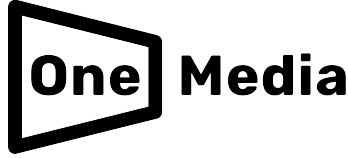Table of Contents
Les envois de fonds : un soutien vital pour les familles libanaises
Fadi El-Halak lost his popular bakery, his source of income, due to the severe economic crisis that hit Lebanon in 2019, with significant impacts beyond his expectations on his life. After managing the bakery for 25 years, attracting customers from all directions, El-Halak found himself « empty-handed » in the face of challenges that forced him to retire and rely on a monthly financial transfer from his son in Saudi Arabia to sustain a decent living.

A monthly financial transfer of $500 helps El-Halak cover his daily needs, previously equivalent to 750,000 Lebanese pounds when the dollar was 1,500 pounds. Today, with the exchange rate soaring to 90,000 pounds, $500 equals 45 million pounds.
Transferts mensuels en dollars
- Many Lebanese families rely on financial transfers from their expatriate relatives. Nada Sleiman, currently vacationing in Lebanon after working in an African country, regularly sends money to her family, covering basic expenses to improve their living conditions slightly.
- Ahmad Al-Hajj receives $700 monthly from his son, barely enough for essential living costs, serving as additional support to his main source of income.
- Mohammed Al-Ali receives $1500 monthly from his daughter, this amount goes into rent, basic necessities, and some entertainment expenses, considering it as a good income rather than mere support.
Le coût de la vie minimum
According to a recent report by the International Company for Information and Statistics in Lebanon, the cost of living for a four-member family, covering only essential needs, has reached 52 million Lebanese pounds monthly ($582) in rural areas and 71 million Lebanese pounds ($794) in cities, excluding healthcare costs.
The minimum house rent in villages is around $150 monthly, while in cities, it can reach $300 or more depending on the area and housing conditions. The minimum cost for electricity generators monthly is $40, while food and consumer goods range from $250 to $300 monthly.
Supporting the National Economy

These transfers play a pivotal role in supporting the national economy. The World Bank estimated expatriate transfers to Lebanon at $6 billion in 2023, positioning Lebanon in third place regionally, following Egypt ($19.5 billion) and Morocco ($11.8 billion).
Financial analyst Dr. Emad Fran highlights the significant role of these transfers in boosting purchasing power, alleviating inflation effects, and maintaining Lebanese families’ living standards. Approximately 1.5 million Lebanese families benefit from these transfers annually, contributing to an average annual income of around $15,000 per family, enhancing monthly income by about $1250.
Enhancing Purchasing Power
Economic expert Dr. Emad Akoush emphasizes the importance of expatriate transfers in enhancing purchasing power, mitigating inflation effects, and preserving the living standards of Lebanese families. These transfers contribute to improving access to education, healthcare, and housing, crucial services in Lebanon, especially after the dollarization of these services.

